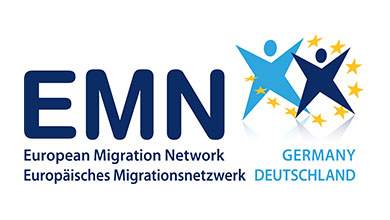EMN Inform: Language and literacy support measures for adult beneficiaries of international protection ,

This joint Inform from the EMN, the OECD, and the Council of Europe examines language and literacy support measures that adult beneficiaries of international protection can acess in the EMN Member and Observer Countries. It adresses formal and non-formal measures and identifies good practices.
Proficiency in the language of the host country is a key component for the integration of beneficiaries of international protection. Twenty-three out of 24 reporting EMN Member and Observer Countries provide targeted and/or mainstream language support measures that adult beneficiaries of interna-tional protection can access. EMN Member and Observer Countries offer a broad variety of formal and non-formal language learning options. The actors involved in the design and implementation of lan-guage support measures differ widely.
The Inform describes how EMN Member and Observer Countries organise language and literacy promo-tion measures for adults with international protection: Are the courses mandatory, and what are the attainment requirements? How are language support measures financed, quality assured, or evaluated, and what additional support measures are offered? The Inform compares the most important measures taken by 23 EMN Member and Observer Countries highlighting good practices that have proven particu-larly effective.
Some EMN Member Countries reported good practice examples of language measures to facilitate access to the labour market. These include: language measures accompanying labour market entry; sector-specific initiatives; workplace-based language support; and employer schemes. Other good practices highlighted are practical language courses outside the classroom, volunteering, courses for specific target groups, and digital tools.
The EMN Inform is only available in English.

